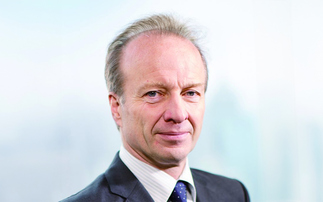In the face of the most serious global health crisis in more than a century, fiscal and monetary policymakers around the world will very likely have to pull out all the stops in an effort to prevent what currently looks like an inevitable recession from turning into a depression, and to stop financial markets from shifting from a drawdown into a meltdown.
The (relatively) good news is that governments and central banks are on the case and have started to respond more forcefully to coronavirus-related stresses this past week. Importantly, seeking to underpin markets and ultimately the economy, the Federal Reserve on Sunday (15 March) announced a comprehensive easing package including near-zero policy rates, large-scale purchases of U.S. Treasuries and mortgage-backed securities (MBS), lower rates on currency swaps, and regulatory relief for banks. This is about as close as it gets to "whatever it takes."
Still, a global recession in response to a combination of supply disruptions and a sudden and drastic drop in demand for (mostly) services appears to be a foregone conclusion. Against this backdrop, the task at hand for governments and central banks has been and continues to be to ensure that the recession stays relatively short-lived and doesn't morph into an economic depression - loosely defined as a combination of a prolonged slump in activity that lasts longer than just a few quarters, a very significant rise in unemployment, and mass business bankruptcies and bank failures...
Continue reading on Pimco.co.uk
Joachim Fels - Global Economic Advisor
Mr. Fels is a managing director and global economic advisor based in the Newport Beach office. He is a member of the Investment Committee and leads PIMCO's quarterly Cyclical as well as the Secular Forum process. Prior to joining PIMCO in 2015, he was global chief economist at Morgan Stanley in London. Previously he was an international economist at Goldman Sachs and a research associate at the Kiel Institute for the World Economy. He has 32 years of macro research experience and holds a diploma in international studies from the Johns Hopkins University School of Advanced International Studies in Bologna, Italy; a master's degree in economics from Universität des Saarlandes in Saarbrücken, Germany; and an undergraduate degree from Christian-Albrechts-Universität in Kiel, Germany.
Important Information
This message contains confidential information and is intended only for the individual named. If you are not the named addressee, you should not disseminate, distribute, alter or copy this e-mail. Please notify the sender immediately by e-mail if you have received this e-mail by mistake and delete this e-mail from your system. E-mail transmissions cannot be guaranteed to be secure or without error as information could be intercepted, corrupted, lost, destroyed, arrive late or incomplete, or contain viruses. The sender, therefore, does not accept liability for any errors or omissions in the contents of this message which arise during or as a result of e-mail transmission. If verification is required, please request a hard-copy version. This message is provided for information purposes and should not be construed as a solicitation or offer to buy or sell any securities or related financial instruments in any jurisdiction. Please note to the extent that we collect any personal data we will use that personal data in accordance with our Privacy Policy https://europe.pimco.com/en-eu/general/legal-pages/privacy-policy#howweuseyourdata. PIMCO Europe Ltd is registered in England and Wales Company No. 2604517 and has its registered office at: 11 Baker Street, London, W1U 3AH.















